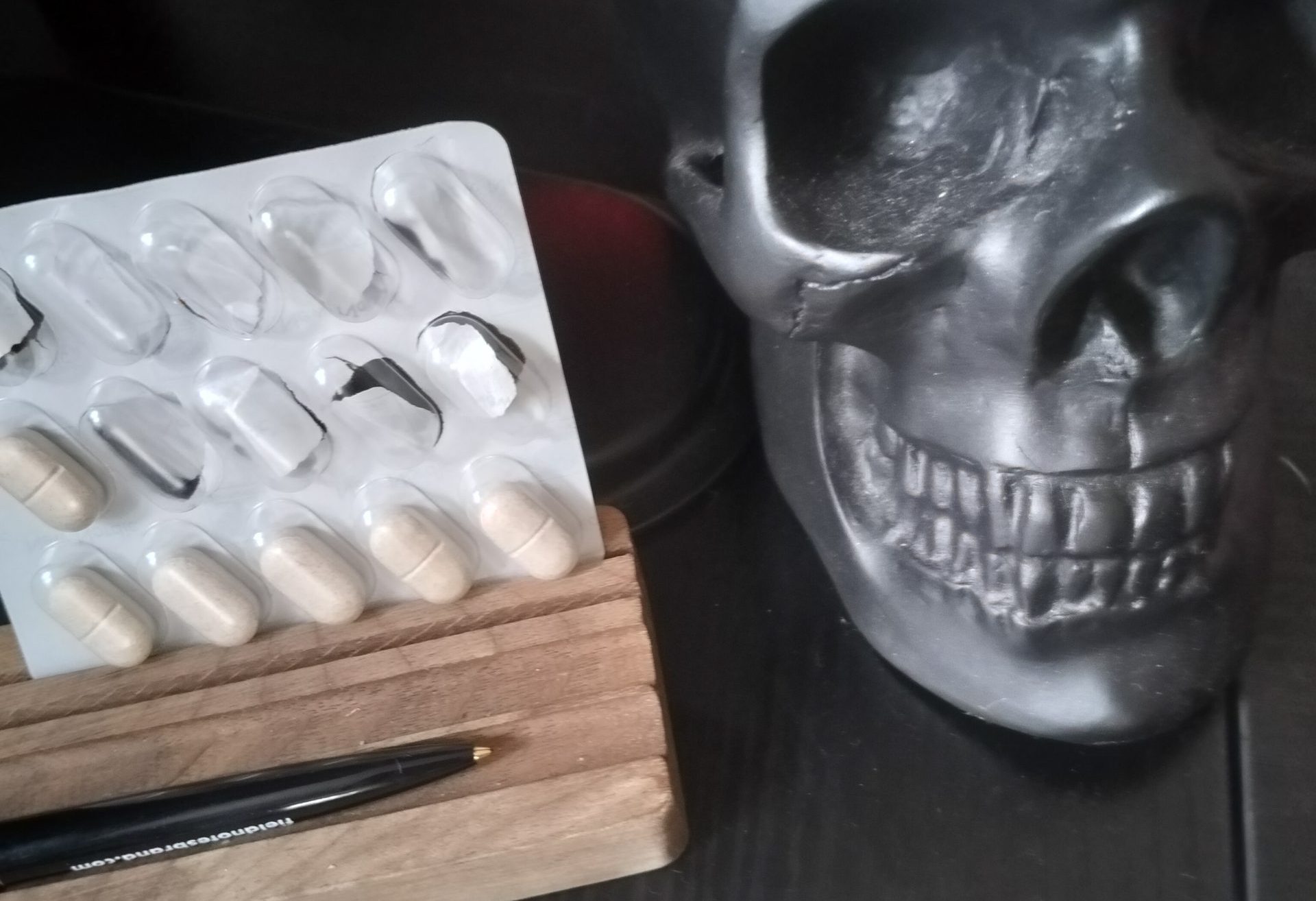Author’s Note:
This post was inspired by Maya Angelou’s poem “When I Think About Myself.” Her words come from a history and an experience that aren’t mine, but what resonated with me was her use of laughter as both armor and confession. What follows is my own reflection, a much smaller, messier version of that rhythm. About the ways I hide grief behind jokes. I hope you find something of yourself here too, whether it’s in the laughter, the grief, or the space in between.

The Spark
I read Maya Angelou’s poem “When I Think About Myself” and feel my chest tighten with recognition. I read it again, and it still catches in my throat. I read it today and it still fucking stings. Her laughter isn’t my laughter. Her history isn’t mine, but I know what it is to laugh so the crying doesn’t swallow you whole. My version is smaller, messier, less tethered to survival and more to shame. Still, the rhythm is familiar: joke first, grief hiding underneath.
My Version of the Laughter
I tell my therapist things that sound like jokes.
Like: “My sleep schedule isn’t broken, it’s just… creatively curated.”
Or: “My morning routine lasted three days, which is actually a personal best.”
She smiles, makes a note, and I try to move on, hopeful that I’ve kept it light.
But here’s the thing: I’m not really joking. (And my therapist knows that.) The jokes are just camouflage. They’re how I confess without admitting it.
It’s easier to laugh about my abandoned planners than to say I grieved the person I thought those planners could make me. It’s easier to make a crack about my Fitbit than to say I sometimes wonder if I’ll ever feel “normal.”
The laughter buys me just enough air to speak the truth, but only sideways… like I’m trying not to look it in the eye.
The Weight Underneath
The truth is, the laughter only stretches so far. Underneath it, there’s the ache of all the things I thought I’d outgrow by now: the scattered thoughts, the empty lists, the absolute fury at existing in the world, in general everything just being so fucking complicated.
I open an old planner and find week one filled with neat handwriting, hopeful doodles in the margins. Week two is patchy. Week three doesn’t exist. The book itself is heavier than it should be, not because of the paper, but because of the failure I’ve stapled to it.
It’s funny, in a bleak way, how much stationery can resemble a gravestone. Every notebook is a headstone for another version of me who didn’t make it. Another try at order, another attempt at “normal,” buried under tabs and trackers.
And that’s the part that stings most: I thought I was chasing productivity. What I was really chasing was proof I wasn’t broken.
Why It Resonates
That’s why Angelou’s poem lingers with me. She writes about laughter with a weight I can’t claim. Her survival isn’t mine to borrow. But the cadence of it … that rhythm of laughing to cover the pain, that part I know in my fucking bones.
Because every time I make a joke out of my mess, what I’m really saying is: “This hurts. This scares me. I don’t know how else to tell you.”
I can’t carry the weight she carried, but I can recognize the shape of my own.
Laughter, Still
So yes, I laugh,
The confession half-told,
Some truth wrapped in wit,
A joke that betrays more than I’d admit,
When I talk about myself.


